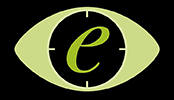When the winners of the 2023 Sony World Photo competition were announced, it was accompanied by the bombshell discovery that the winner of the Open Category, Boris Eldagsen, had created his entry using AI software rather than a camera.
To be fair to Elgadsen, he immediately revealed the workings behind his creation and he explains why in the this Guardian article.
“We, the photo world, need an open discussion,” said Eldagsen. “A discussion about what we want to consider photography and what not. Is the umbrella of photography large enough to invite AI images to enter – or would this be a mistake?
“With my refusal of the award I hope to speed up this debate.”
The debate certainly had social media aflutter with discussion as well as judges of the judging process.
For photography competitions AI is a nightmare – firstly in developing news ways to detect these images and secondly in the resulting negative PR which would undoubtedly arise if it was missed during the judging. Good competitions build a reputation for quality and professionalism over many years and this can be rapidly undermined by AI if it isn’t declared or picked up.
AI isn’t photography
An AI image is extreme digital imaging. It isn’t photography and it requires a different skill set to that of a photographer. The rules can state that AI images are not eligible but, sadly, there are always less photographically talented people out there who will try and get around the rules. Digital image manipulation (see our In the RAW feature) has caused problems for photography competitions and with AI-generated images, things will only get more complicated.
From a user’s standpoint, AI software can now generate believable images with cheap or even free programs, so there is a tantilising temptation to explore it. However the biggest threat with AI is that it isn’t just static: the more it’s used, the more it learns and the better it gets. This means the problem for photographers, especially those seeking to earn a living from the craft, will just grow and grow.
Trust and authenticity
What does this mean for the future of image making? How do you tell what is authentic and what was manufactured using AI? It will become increasingly difficult to distinguish. In areas like news, truth is already an issue. What will it mean for travel? AI isn’t about making things better. It’s about making things cheaper.
Budgets in the travel industry are notoriously tight already and, over the last decade or so, original photography has been nudged out in favour of cheap stock imagery. If a travel company already doesn’t want to spend money on photography, it’s only the tiniest of steps to spend virtually nothing on an AI-generated image. With this usage, truth in travel goes out the window and the travel consumer will no longer be able to believe any of the images they browse to select their holiday destination or hotel.
This is a big topic, and one which requires a far more in-depth examination, but it’s going to be more and more intrusive in our lives as we cross a threshold of truth versus fiction. We can stop it, but it’s is certainly time to pause for thought before accepting or embracing it.
What do you think? Will AI imagery replace real photos in travel marketing? Are you tempted to see what enhancements AI can make to your photos? Do you already look twice before you believe the old adage that ‘the camera never lies’?

